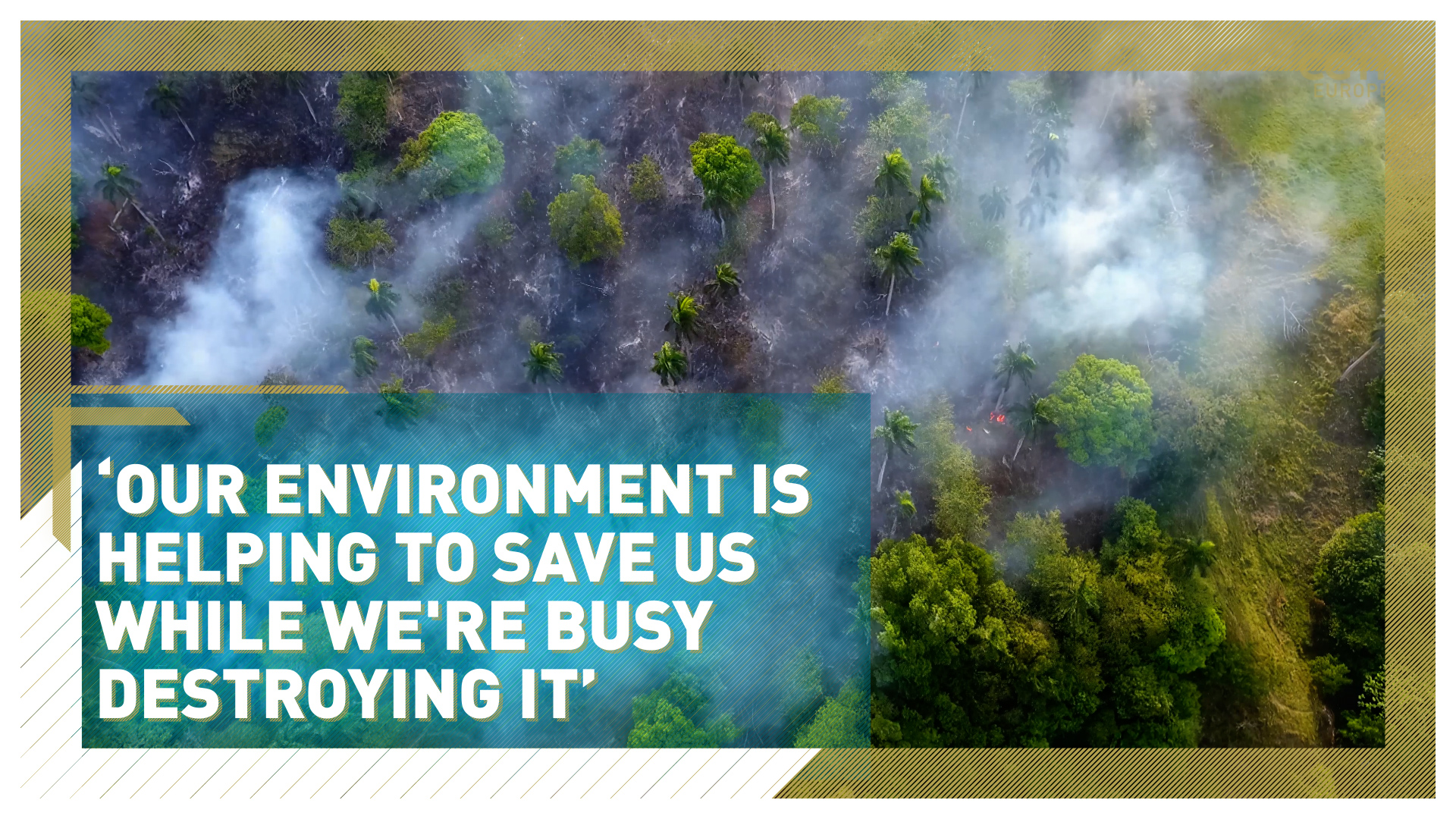01:53

Reforestation is the key to fighting climate change, said the head of the Coalition for Rainforest Nations upon the release of a damning IPCC climate change.
The report implored governments to act immediately to protect forests and alter farming methods, such actions could cut around a quarter of the greenhouse gas needed to avert the worst impacts of climate change.
Kevin Conrad, the Executive Director of Coalition for Rainforest Nations, urged a drastic and immediate reduction in carbon emissions.
"Natural habitats are pulling about 11 gigatons of carbon out of the atmosphere every year, and we're emitting about 50. So we've got to reduce as quickly as possible that 40 [gigatons]."
READ MORE
The trouble with birch pollen
Who will be France's next President?
Bucha killings: The evidence
About 22 percent of global greenhouse gas emissions came from agriculture, forestry, and other land-use sectors in 2019, the report said, around half of which were from deforestation. Much of the rest came from the combustion of fossil fuels.
Mitigation measures in those sectors - including protecting forests from clearcutting, sequestering carbon in agricultural soils, and more sustainable diets - can provide as much as 20-30 percent of the emissions reductions needed to limit global warming to 1.5 or 2 degrees celsius above pre-industrial levels.

Deforested mountains from massive limestone quarries are seen in Ipoh, Perak state Malaysia. /AP Photo/Vincent Thian
Deforested mountains from massive limestone quarries are seen in Ipoh, Perak state Malaysia. /AP Photo/Vincent Thian
"Indigenous peoples, private forest owners, local farmers, and communities manage a significant share of global forests and agricultural land and play a central role in land-based mitigation options," the report said.
Conrad told CGTN Europe, "We've got to stop slowing down our environment, and it will help save us, and we're going to have to start putting money back into our environment to allow it to do its services, as it naturally does."
While the changes required in the agriculture, forestry, and other land-use sectors - dubbed AFOLU by climate specialists - would not cost much to implement, there is little momentum so far to trigger them.
A lack of institutional and financial support, uncertainty over long-term tradeoffs of how land is managed, and the dispersed nature of private landholdings have hindered implementation so far.
"Land provides us with so much, for example, food, nature, and our livelihoods," said Diana Urge-Vorsatz, vice-chair of the IPCC working group that authored the report. "These competing demands have to be carefully managed."

The coal-fired Boxberg Power Station, operated by Lausitz Energie Bergbau AG (LEAG) company, is pictured in Boxberg. /Reuters/Matthias Rietschel
The coal-fired Boxberg Power Station, operated by Lausitz Energie Bergbau AG (LEAG) company, is pictured in Boxberg. /Reuters/Matthias Rietschel
At the UN climate summit in Copenhagen 12 years ago, rich nations pledged to channel $100 billion to less wealthy countries by 2020, to assist in their adaptation to fight climate change.
The target was missed and the promise was broken.
The $100 billion figure, argues Conrad, not really a big number.
"If we tie it into the global economy intelligently, it sounds like a big number, but our global economy is trillions almost every day. We can figure this out."
Source(s): Reuters

